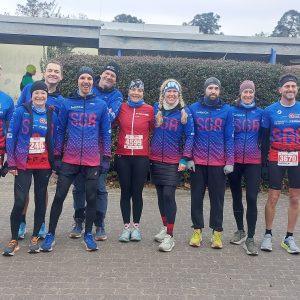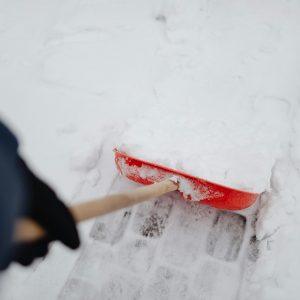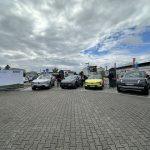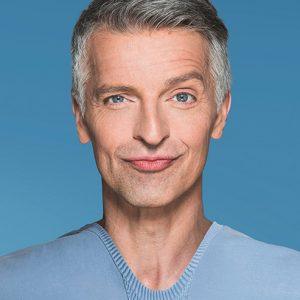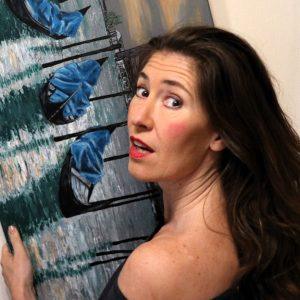WERBUNG
Manuel Feick ist ein Bürgermeister zum Anfassen: bodenständig, offen, direkt. Seit 2019 steht er an der Spitze der Stadt Reinheim und wurde zuletzt mit großer Zustimmung im Amt bestätigt. Der studierte Verwaltungsfachmann war zuvor unter anderem in Messel und Modautal kommunalpolitisch aktiv, bevor er 2016 zum Ersten Stadtrat von Reinheim gewählt wurde. Er ist ein Bürgermeister mit viel Herzblut und dem erklärten Ziel, Politik nah an den Menschen zu machen.
Im Gespräch berichtet Feick über seine Motivation, warum soziale Sicherheit und Klimaschutz für ihn zentrale Themen sind – und wie Reinheim auf den Weggang des Großunternehmens MERZ reagiert. Dabei gibt er auch ganz persönliche Einblicke: Was ihm wirklich wichtig ist, welche Werte ihn leiten – und warum ihm ein Kochkäseschnitzel mehr sagt als Austern und Golfplätze.
Herr Feick, Sie sind in Ihrer Stadt ein beliebter Bürgermeister – das hat auch Ihre jüngste Wiederwahl gezeigt. Was unterscheidet Sie von Amtskollegen in anderen Kommunen und Gemeinden? Was machen Sie vielleicht ein wenig anders?
Ich hatte mit den ehemaligen Landräten Alfred Jakoubek und Klaus-Peter Schellhaas sehr gute Lehrmeister. Sie haben mir vermittelt, wie wichtig eine transparente Bürgerkommunikation ist – gerade auch bei unpopulären Entscheidungen. Besonders wichtig ist es, Menschen mitzunehmen, die Entscheidungen nicht auf Anhieb verstehen. Man muss sich Zeit für sie nehmen. Ebenso entscheidend ist der Umgang mit den sozialen Netzwerken: Wenn man sie nicht selbst aktiv nutzt, wird man von anderen „bespielt“. Ich mache das alles selbst – ich antworte persönlich. Eine offene Kommunikation auf Augenhöhe ist mir enorm wichtig.
Lassen Sie uns den Menschen Manuel Feick etwas besser kennenlernen: Welche Hobbys haben Sie? Mit welchem Essen kann man Ihr Herz gewinnen? Und welche Werte sind Ihnen besonders wichtig?
Ich würde mich als geselligen und genussfreudigen Menschen beschreiben, der sehr bodenständig ist und eine tiefe Verbundenheit zu seiner Heimat empfindet. Ein Kochkäseschnitzel ist mir allemal lieber als Austern, und ich gehe lieber kegeln als golfen – wobei das nicht despektierlich gegenüber Golfern gemeint ist. Ich bin verlässlich und habe für alle ein offenes Ohr.
Kommen wir zur Stadtpolitik: Reinheim steht – wie viele Kommunen – vor finanziellen und strukturellen Herausforderungen. Wo sehen Sie Sparpotenziale, und wo möchten Sie trotz knapper Kassen investieren?
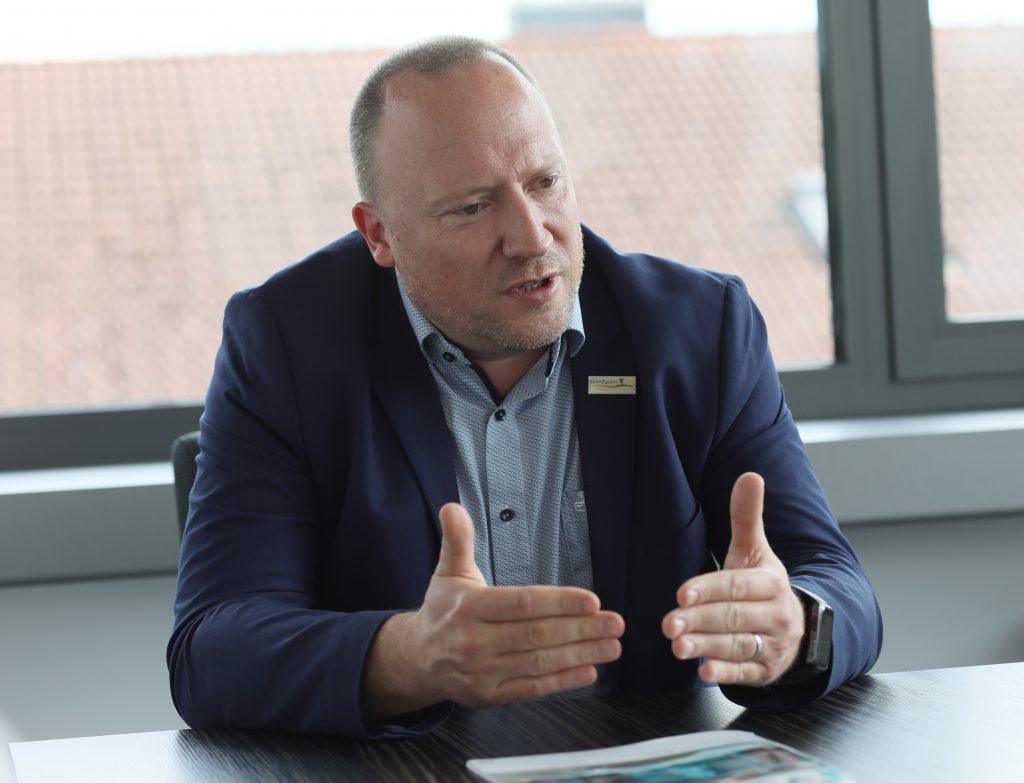
Natürlich stehen wir wie alle Kommunen unter finanziellem Druck. Wir haben Einflussfaktoren, die wir kaum steuern können – etwa die Inflation, der kommunale Finanzausgleich, steigende Lohn- und Energiekosten. Hinzu kommen gesetzliche Vorgaben, etwa zur Nachmittagsbetreuung von Kindern. Diese ist verpflichtend, erzeugt aber Defizite, da wir dafür keine ausreichende Unterstützung vom Land erhalten.
Unser Ansatz im Haushaltsbereich ist sehr sensibel: Wir planen jede Investition – unabhängig von ihrer Größenordnung – sehr genau und fragen uns immer: Wie soll das finanziert werden? Im Privaten macht man das ja auch nicht anders.
Trotz aller Herausforderungen setzen wir weiterhin klare Schwerpunkte – etwa bei der Stärkung von Kindern, Familien, Senioren und beim Bevölkerungsschutz. Soziale Sicherheit ist mir ein großes Anliegen, ebenso der Erhalt und die Verbesserung der Infrastruktur, energetische Sanierungen und der Klimaschutz. Daran darf nicht gespart werden.
Grundsätzlich verfolgen wir das Ziel, keine neuen Schulden aufzunehmen. Reinheim ist eine lebens- und liebenswerte Stadt mit einem aktiven Vereinsleben und einer attraktiven Freizeitinfrastruktur – wie unserem Freibad. Außerdem haben wir einen der günstigsten Hebesätze im Landkreis.
Gibt es Neuigkeiten zum Thema MERZ? Wie kann dieser wichtige Arbeitgeber und Gewerbesteuerzahler adäquat ersetzt werden – gibt es bereits Pläne?
Am Anfang des Prozesses stand die Frage, ob die Stadt das Grundstück von MERZ annehmen darf – das Unternehmen hat es uns nämlich geschenkt, um es einer neuen Nutzung zuzuführen. Dabei ging es unter anderem um die Frage der Schenkungssteuer und ob die Stadt ein solches Geschenk überhaupt annehmen darf. Nachdem diese rechtlichen Fragen positiv geklärt wurden, steht in der Kommenden Stadtverordnetenversammlung die Grundstücksschenkung auf der Tagesordnung und ich hoffe, dass der Schenkung zugestimmt wird.
Zusätzlich wollen wir eine angrenzende Fläche bis zum „Sonnenhof“ erwerben, sodass wir insgesamt 80.000 Quadratmeter entwickeln können. Wir haben klare Vorstellungen davon, welche Betriebe wir dort ansiedeln möchten – die Ansprache potenzieller Investoren übernimmt ein professioneller Dienstleister für uns. Dieser steht auch mit größeren Unternehmen in Kontakt. Bei alledem müssen wir stets im Blick behalten: Wie kompensieren wir den Verlust von rund 300 Arbeitsplätzen und etwa zwei Millionen Euro an Gewerbesteuer?
In vielen Städten arbeiten Politik, Gewerbe und Vereine eher nebeneinanderher – in Reinheim scheint das anders zu sein, etwa beim „Reinheimer Markt“. Woran liegt das Ihrer Meinung nach?
Ich glaube, das liegt vor allem am respektvollen Miteinander zwischen den Institutionen, dem Gewerbeverein und den städtischen Organisationen. Wir begegnen uns auf Augenhöhe und verfolgen gemeinsam das Ziel, das Gewerbe zu stärken und in Reinheim zu halten. Gegenseitige Bedürfnisse und Herausforderungen werden ernst genommen. Die Wirtschaftsförderung ist eines meiner zentralen politischen Themen.
Reinheim ist – wie auch Pfungstadt – mit einem Vorort von Bordeaux verschwistert. Wird diese Städtepartnerschaft noch gelebt? Und gibt es vielleicht eine schöne oder lustige Anekdote dazu?
Auch die Partnerschaft mit der französischen Stadt Cestas ist mir persönlich sehr wichtig. Zwar ist unser Partnerschaftsverein etwas in die Jahre gekommen, aber er leistet nach wie vor großartige Arbeit. Besonders hervorzuheben sind die gegenseitigen Besuche – etwa der Feuerwehren – und der aktive Jugendaustausch, etwa im Jugendfußball. Es gibt sogar gemeinsame WhatsApp-Gruppen. Ich kann mit Überzeugung sagen: Diese Partnerschaft lebt.
Zum Abschluss noch einmal zurück zu Ihrer Person: Was hat Sie persönlich motiviert, für das Amt des Bürgermeisters zu kandidieren? Und was möchten Sie nach Ihrer Amtszeit in Reinheim hinterlassen haben?
Ich habe es nie geplant, einmal Bürgermeister zu werden. Viele Zufälle haben dazu geführt. Nach kommunalpolitischen Zwischenstationen in Messel und im Modautal bin ich nach Reinheim gezogen, wurde dort Erster Stadtrat – und traf auf sehr kompetente und unterstützende Menschen, die mich gefördert haben und hinter mir standen. Das waren keine „Fallensteller“.
Heute kann ich sagen: Das ist mein Traumjob. Ich kann gestalten, Einfluss nehmen und aktiv Probleme lösen. Ich wünsche mir, dass die Menschen in Reinheim noch enger zusammenrücken, dass ein echtes Miteinander entsteht – mit Dialog anstelle von übereinander reden. Zum Wohl unserer Stadt und unserer Gemeinschaft.

